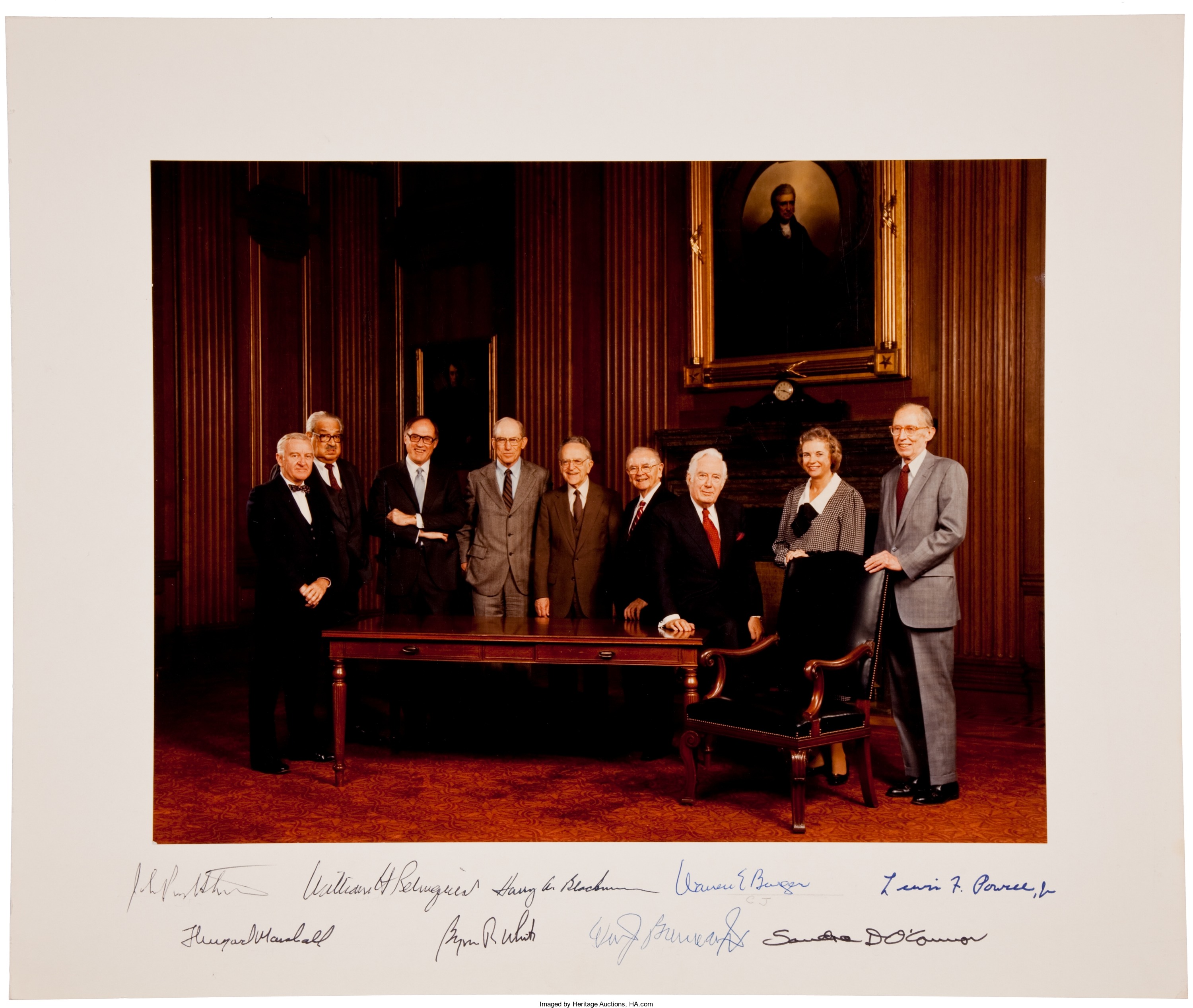
By Jim O’Neal
When Justice Lewis F. Powell Jr. unexpectedly announced his retirement in June 1987, no commentator failed to emphasize the implications for the future of the Supreme Court. The New York Times stated the obvious: “Powell’s resignation gives President Reagan a historic opportunity to shape the future of the Court.” Justice Powell had played a pivotal role as the tie-breaking vote on controversial issues such as abortion, affirmative action and separation of church and state.
Yet Powell was not merely a simple tie-breaker. Since he frequently swayed the court’s decision from one ideological camp to another by virtue of his swing vote, he was viewed as mainstream. As a result, President Reagan attempted to portray Powell’s replacement, Robert Bork, as neither conservative nor liberal, stressing his “evenhanded and open-minded approach to the law.”
The president’s lack of success was immediately evident when Senator Edward Kennedy – only 45 minutes after Bork’s appointment – fired the opening salvo against Bork’s record on abortion, civil rights and criminal justice. Kennedy declared, “Robert Bork’s America is a land in which women would be forced into back-alley abortions, blacks would be forced to sit at segregated lunch counters, rogue policemen could break down citizens’ doors in midnight raids, schoolchildren could not be taught about evolution, and artists could be censured at the whim of government.”
Once Kennedy unleashed these polemics, there was no turning back. Southern Senators were intimidated by the possible loss of black voters and liberals in the Senate were eager for a good fight after eight years of frustrating losses to conservatives.
Despite being confirmed unanimously for the U.S. Court of Appeals, Judge Bork was stepping into a veritable political hornets’ nest and he was the wrong person in the wrong spot at the wrong time! His copious scholarly writings – an asset in academia – and his lucidly crafted, elegantly penned opinions on the appellate bench were red meat in the hands of hostile interest groups.

Moreover, Bork’s personal appearance and demeanor seemed as suspect as his ideology. His devilish beard and turgid academic discourses did not endure him to the public or wavering Senators. His detailed, scholarly, lecture-like answers to every single question would be considered naive today … where nominees are well versed in the art of non-answers to tough questions, and grilled by “murder boards” designed to prepare careful answers to virtually everything the nominee has written or spoken since puberty. Today’s Google/Facebook generation of staffers can unearth obscure facts that might be even slightly contentious.
Judge Bork’s nomination was rejected by a resounding 42-58 vote. After being transfixed by the riveting testimony, I personally believe that even if Judge Bork were given another try today (he died in 2012), the outcome would be similar. He had such a high regard of his superior legal acumen and was so openly dismissive of the twits on the Senate Judiciary, it would be another verbal combat that would end just as badly.
It would be a perfect scenario for a pay-for-view cable TV spectacle, especially for Supreme Court nerds like moi.
 Intelligent Collector blogger JIM O’NEAL is an avid collector and history buff. He is president and CEO of Frito-Lay International [retired] and earlier served as chairman and CEO of PepsiCo Restaurants International [KFC Pizza Hut and Taco Bell].
Intelligent Collector blogger JIM O’NEAL is an avid collector and history buff. He is president and CEO of Frito-Lay International [retired] and earlier served as chairman and CEO of PepsiCo Restaurants International [KFC Pizza Hut and Taco Bell].
